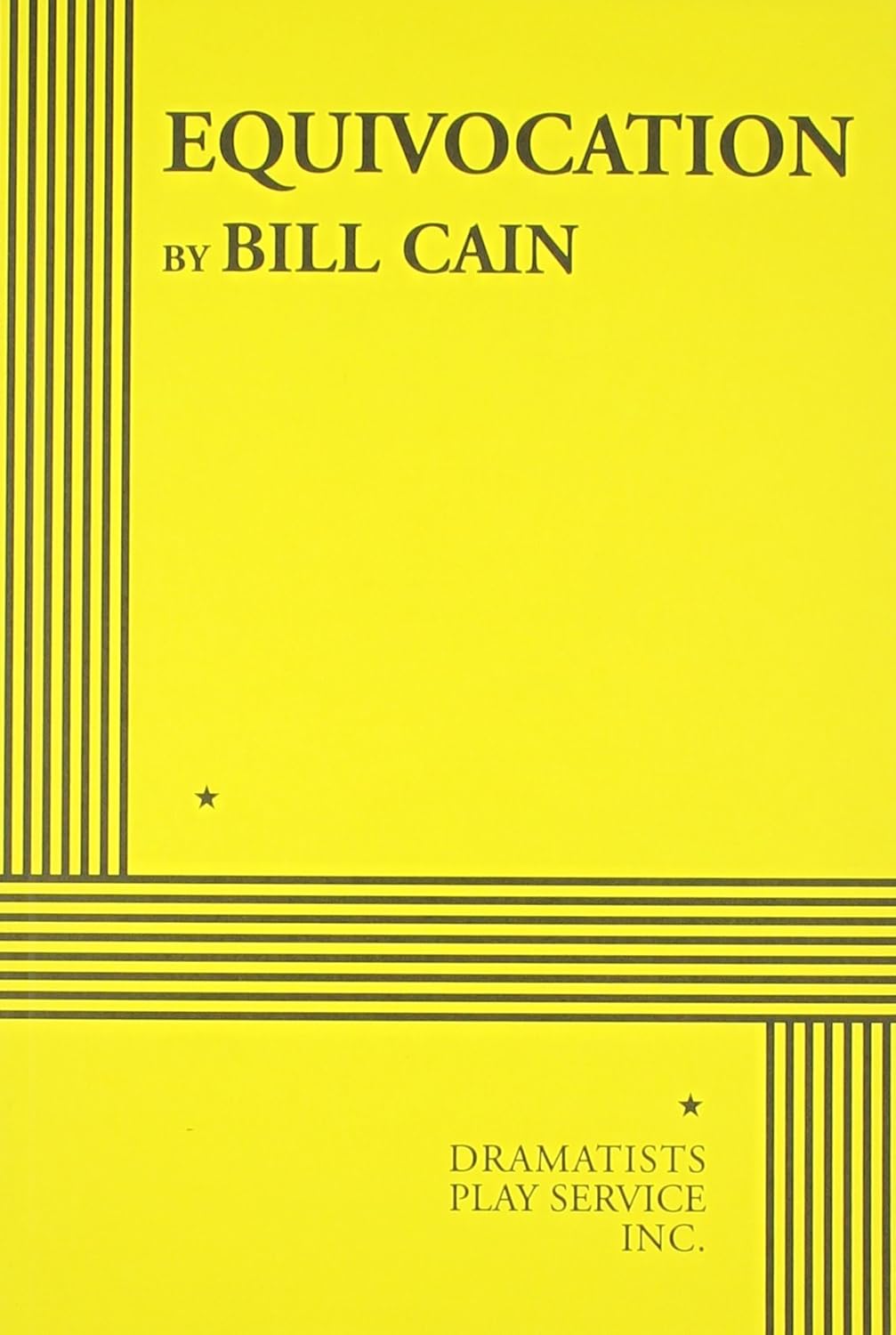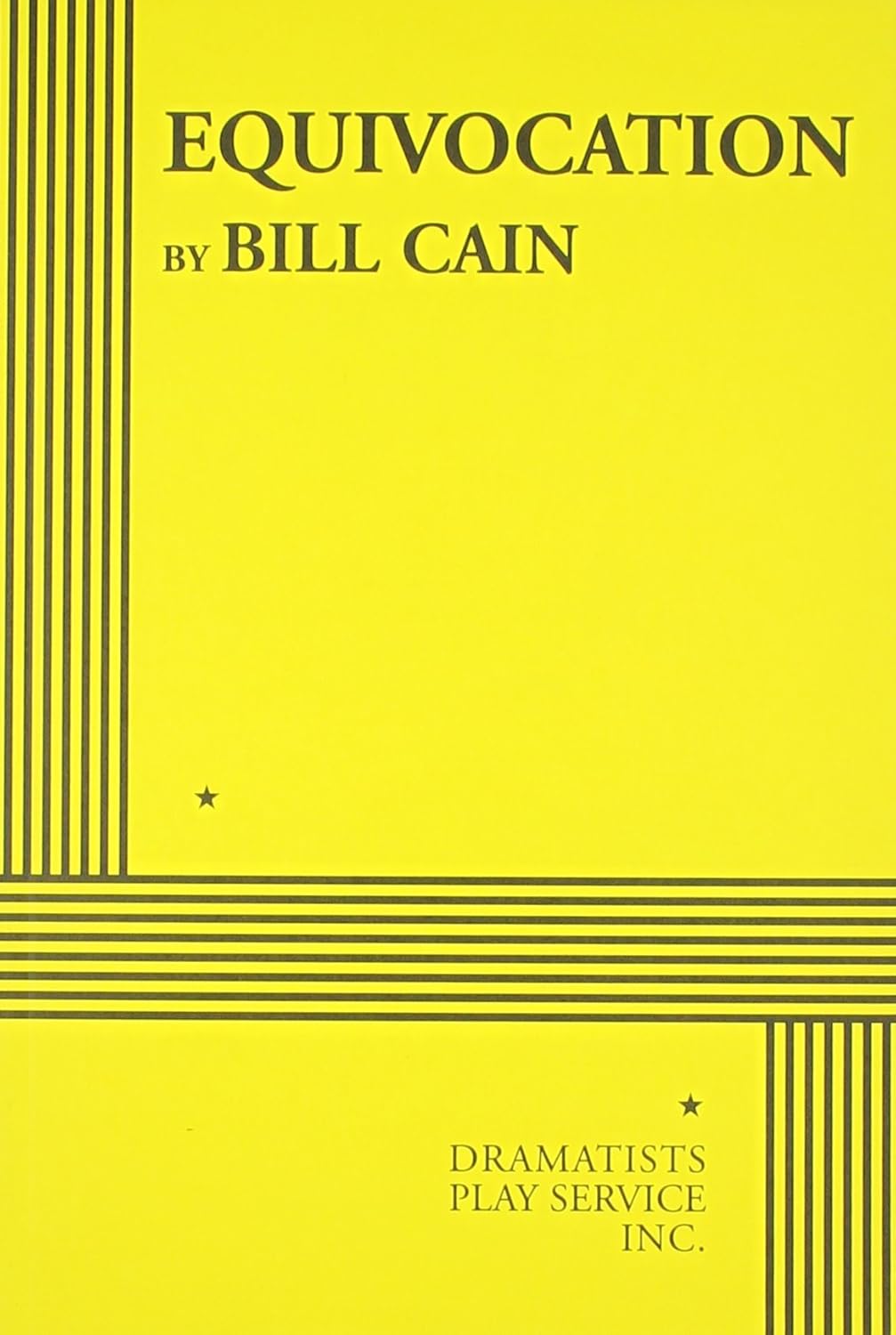Bill Cain's Equivocation was recommended as a play about the Gunpowder Plot that had some connection to Macbeth. I dutifully requested it through Inter-Library Loan, and, after it had spent the requisite amount of time on my shelf, I read it.
Beyond the information that it connected to Macbeth, I had no idea what to expect. What I found delighted and thrilled me. I thought I was just going to dip into it, but I stayed exactly where I was until the last page—and even longer as I tried to digest what I had just experienced.
The play drops us right down in 1606 at a meeting between Shag (the name given to Shakespeare in this play—short for "Shagspeare," one contemporary spelling of the name) and Sir Robert Cecil, the Secretary of State (essentially, the Prime Minister avant la lettre) under Elizabeth the First and James the First.
Cecil is asking—make that demanding—that Shag write a play about the Gunpowder Plot (it's eventually titled The True History of the Powder Plot).
The rest of the play is about that endeavor and Shag's skepticism about the official version of events. We get glimpses of that play in rehearsal, but King Lear is also about to be performed . . . and Shakespeare is simultaneously composing Macbeth.
With your permission, I'll drop you right into the play's first scene:
That's a masterful opening—and, as you can tell, it just keeps going. We segue immediately into a rehearsal of the storm scene in King Lear where the actors try to make sense out of the chaos of one of Shakespeare's most difficult plays. Richard Burbage, playing Lear, says, "Look, I know it's a difficult scene. I'm made; he's half-mad; you're pretending to be mad and he's a fool. It might be the most difficulty scene he's ever written. But if we could get through is comedies-don't-have-to-be-funny period, we can get through whatever this is" (15).
I don't want to provide spoilers for the rest of the play, but there are insightful scenes about the purpose of playing, the value of community, the potential difficulty of fathers and daughters communicating (Judith Shakespeare is a persistent presence throughout), the nature of religious belief, what politics is and does, and why James the First will always love a play with witches in it. And I'll add that the play is quite brutal at times, enacting the torture and execution of some of the Gunpowder Plotters.
And it has quite a number of references to earlier plays by Shakespeare—and foreshadowing of the late plays as well.
Bill Cain's Equivocation is a powerful and compelling play. Please let us all know if you learn of a production. I, for one, will drop everything to see it staged.
Click below to purchase the play from amazon.com
(and to support Bardfilm as you do so).
(and to support Bardfilm as you do so).














2 comments:
I saw this performed in Philadelphia at the Arden Theater in 2015 and it was very good. I hope you get to see it one day!
Thanks, Donna! I'll certainly keep my eye out for a production.
In the meantime, I'll be starting a grassroots campaign to get the Great River Shakespeare Festival to stage it as their non-Shakespearean offering (which is almost always related to Shakespeare in one way or another).
Take care!
kj (Bardfilm)
Post a Comment